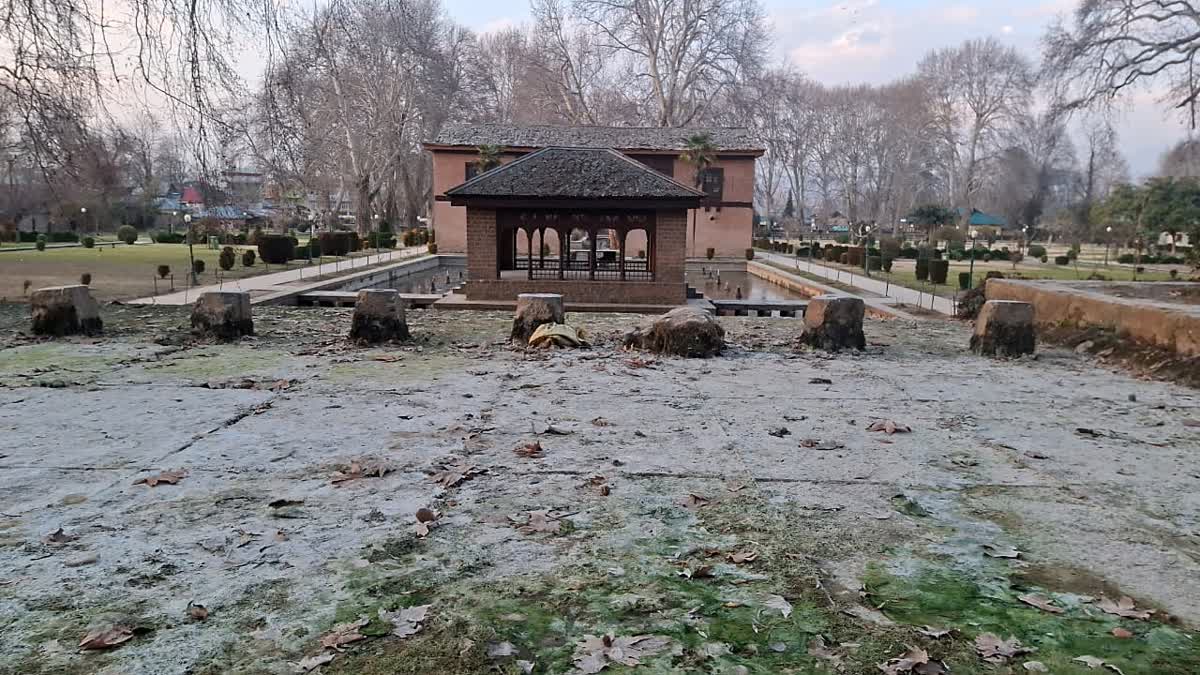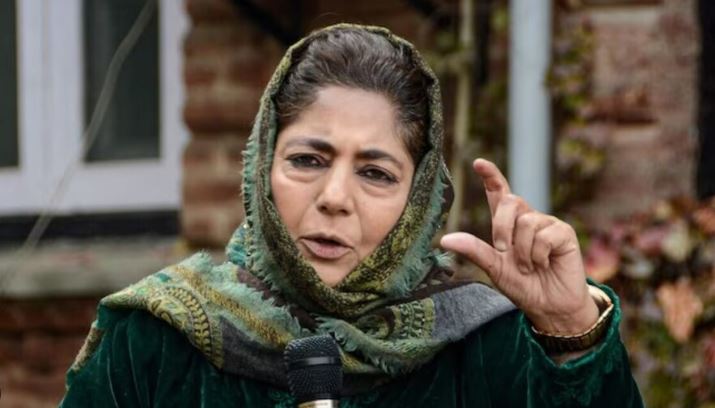Adding to concerns, the Khelo India Winter Games, scheduled for February 22-25, 2025, have been postponed due to insufficient snow in Gulmarg, highlighting the severity of the situation.
Kashmir is experiencing an unprecedented environmental crisis due to rising temperatures, deficient rainfall, and depleting groundwater levels. The region received negligible precipitation in January and February 2025, with an 80% deficit in rain and snowfall over the last three months. This has led to the drying up of water bodies, shrinking glaciers, and frequent forest fires.
Adding to concerns, the Khelo India Winter Games, scheduled for February 22-25, 2025, have been postponed due to insufficient snow in Gulmarg, highlighting the severity of the situation.
The famous Achabal spring, a vital water source in Kashmir, has completely dried up, leaving many people struggling for drinking water. Reports indicate that 65% of water sources across the region are facing severe depletion, contributing to drought-like conditions.
Environmental experts attribute this crisis to climate change and global warming, which have significantly impacted the lower Himalayan region. “The Jhelum River, Kashmir’s main water source, has recorded its lowest levels in decades. Other water sources, including subsoil water, are also drying up,” environmentalist Aijaz Rasool told news agency Kashmir Indepth News Service (KINS).
While some wetlands, such as Hokersar, have shown improvement due to temporary conservation measures, experts warn that without a comprehensive water management policy, the crisis will worsen. “We need a holistic approach to manage water resources, particularly for rivers like Jhelum and Chenab. A structured policy would help regulate water release and conservation,” Rasool emphasized.
The impact of global warming is visible worldwide, with extreme weather patterns causing floods and droughts. Experts suggest that conserving wetlands, lakes, and rivers could mitigate climate change effects.
Rasool urged both the government and citizens to take immediate action to prevent further environmental degradation. “Pollution in our riverbanks must be stopped at every level—from households to municipal authorities. Sustainable conservation efforts are crucial for the survival of our water bodies,” he said. With no official water management policy in place, experts stress the need for immediate intervention to safeguard Kashmir’s water resources and prevent a deeper crisis.
Severe Impact
The crisis is already affecting farmers, who rely on natural water sources for crops and orchards. Farooq Ahmad Sheikh, a 55-year-old farmer, described the dire situation, “Our land is dry, nothing is growing, and even drinking water is scarce. If we plant seeds, they won’t sprout. Apple orchards are already struggling, and this year may be worse.”
Authorities have deployed water tankers to supply affected villages, but nearly 80% of the area has been impacted. Residents, witnessing this crisis for the first time, fear long-term damage to Kashmir’s agriculture-based economy.
Climate Change
Environmental experts attribute the crisis to global warming, deforestation, and groundwater depletion. Dr. Rouf Hamza, an environmental expert, explained, “Deforestation has disrupted groundwater recharge, and freshwater reserves are dwindling. In Varinag, a key source of Jhelum, water levels are at a historic low. Springs across Kashmir are drying up, and glaciers are shrinking. Without rain and snowfall, the situation will only worsen.”
Forest Fires Escalate
The prolonged dry spell has also led to an alarming rise in forest fires. In the past two weeks, over 50 incidents have been reported across Baramulla, Bandipora, Rajouri, and Poonch. Even Srinagar’s Zabarwan Hills has witnessed multiple fire outbreaks. Weather analyst Faizan Arif warned, “This year’s prolonged dry spell is unlike anything we’ve seen before. Usually, winters bring rain and snow, but now, even a small spark can trigger a massive forest fire.”
Drought Concerns for Summer 2025
With Jhelum at its lowest level and an 80-90% drop in precipitation, experts fear a drought-like situation in summer. Farmers and orchard owners, already struggling, may face severe water shortages, further impacting Kashmir’s economy.
Faizan Arif added, “If this trend continues, it will have devastating effects on agriculture and horticulture. Water sources are drying up, and without significant rainfall, summer will be extremely challenging.”
As Kashmir grapples with an unprecedented environmental crisis, urgent measures are needed to address climate change, water conservation, and deforestation to prevent further damage.



